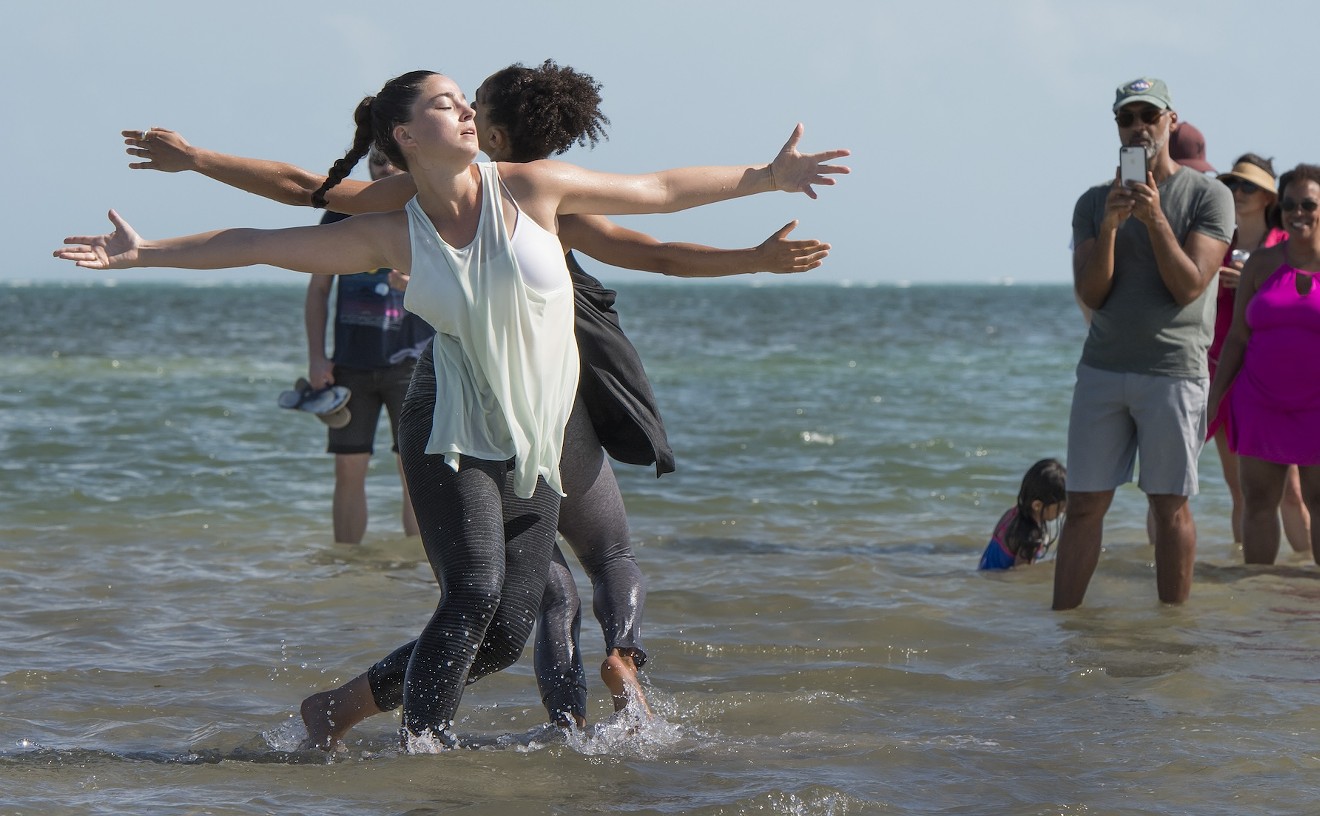As part of the University of Wynwood reading series, poet Roger Reeves is appearing at Lester's Bar this Friday. UW founder P. Scott Cunningham recently spotted Reeves at a writers' conference. He was impressed by the poet's intellect and charisma, noting "His work combines formal rigor and contemporary speech that reminds me of Robert Lowell, Gwendolyn Brooks (who people don't remember was as good a formalist as Frost, if not better), and Elizabeth Bishop. I think he has a very bright future."
He has a pretty bright present as well. He's been published in Poetry, Ploughshares, American Poetry Review, Tin House, Gulf Coast, and Indian Review. And he's been awarded a Ruth Lilly Fellowship by the Poetry Foundation in 2008, two Bread Loaf Scholarships, an Alberta H. Walker Scholarship from the Provincetown Fine Arts Work Center, and two Cave Canem Fellowships. We spoke to Reeves about why he thinks of his poems as animals with four legs and a wicked hunger.
New Times: What can you tell us about your poetry?
Roger Reeves: My poetry is an animal with all four legs and a wicked hunger. But seriously, I am interesting in investigating the intersection of politics (the political, the social) and the personal. I take this task from second and third wave feminists, but I also take this from poets like Langston Hughes, Phillis Wheatley, Natasha Trethewey, and Terrance Hayes.
I am quite interested in sound. For me, poems begin there. Poems are machines of sound, then ideas - there I go mixing metaphors. I am interested in corralling sound into patterns that hopefully bring delight, but I am also interested in troubling my reader--nothing easy, nothing without a little blood and bleeding. There we go, we're back at the original metaphor. My poems are animals with four legs and a wicked hunger.
What inspires you to write?
I am inspired by sound, by images, by snatches of conversation that were not meant for me. I am inspired to say the unsayable. What I mean is that I am inspired by events, images that won't let me go. For instance, it took me two years to write about the lynching of Emmett Till. His death, it's connection to me, wouldn't let me rest.
But it's not just horror; sometimes, it's a line, like "love is the lion lost in the cold city of our clothes"--that line has wracked me for years. Often, poetry is a private conversation that is had between oneself and one's other self, which means that poetry is always public and yet personal.
Which poets do you admire?
I emulate everyone I can get my hands on. The axiom I live my writerly life by is "good writers borrow, great writers steal." I want to be the best literary thief in the business (with citations and attributions of course). I've used Terrance Hayes, Wallace Stevens, Natasha Trethewey, John Ashbery, Sappho, Dean Young, Euripedes, John Donne, William Blake, Anne Carson, D.A. Powell as models and/ or directly cited these folks lines in my work.
I am really interested in collage, integrating other folks lines into my work seamlessly, without the reader knowing unless they read the notes section at the end. Often, when writing, I put several writers in conversation within the same poem--one line from Tomasz Salamun, one line from Harryette Mullen--all the while riffing upon these poets.
Why is poetry important in contemporary society?
Because without it, we would die. But seriously, poetry when it's at its best, it reminds us of the glee, delight, and absolute struggle of what it is to be human, which I believe is divine. Poetry allows us to be completely flawed and beautiful. Ai, a poet who taught at the University of Oklahoma and died about a year ago, reminded us of this with her books like Vice and Dread. Poetry as a practice also allows me to render traumatic and not-so traumatic events in a way that puts me back in control of the event. Louise Gluck writes about this in Proofs and Theories.
Have you ever visited Miami?
No, I have never visited Miami, but I am ashamed and not-so ashamed to admit that I've watched a lot of Miami Vice. Also, as a boy, I was obsessed with the Miami Hurricanes football team; I owned the Starter hat and everything. More recently, I must admit that I rooted for the Miami Heat in the Finals. Anything that is up against the city of Dallas I'll root for. I am originally from right outside Philadelphia. Enough said.
The University of Wynwood is hosting a reading by Roger Reeves at Lester's Bar on Saturday, from 7-9pm. Lester's Bar is located at 2519 NW 2nd Ave., Miami, Florida 33127.
Follow Cultist on Facebook and Twitter @CultistMiami.










